
How to deal with morning sickness at the start of pregnancy
How to deal with morning sickness at the start of pregnancy
Morning sickness can strike at any time of day or night. Especially at the start of pregnancy. Here’s a few things that could help make the first, delicate trimester a little easier to stomach.
- Keep topped up with plenty of fluids to stay hydrated.
- Eat bland starchy foods little and often. Dry crackers usually go down well.
- Try eating cold meals if the smell of hot ones causes pregnancy nausea.
- Avoid spicy or rich foods.
- Steer clear of foods that smell unpalatable.
- Always eat carbs with meals.
- Have a small snack first thing in the morning to avoid an empty stomach.
- Drink ginger tea or eat anything gingery.
- Make a note of what you eat to see if you can learn which foods trigger nausea.
- Get plenty of fresh air.
- Try to get some rest.
- Experiment with acupressure—it works for some people.
- Speak to your healthcare provider (HCP) if your urine is extremely dark.
- Speak to your HCP if your symptoms are concerning you.
- For any other aches and pains, read our checklist on pregnancy pains and discomfort.
Related articles
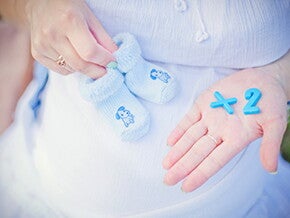
Pregnant with twins?
Are there any risks to being pregnant with twins? What can you expect? We answer all your burning questions and give you tips on how to manage.
3 mins to read

Ever wondered if allergies can be inherited?
Did you know? Just because you suffer from allergies, it doesn’t necessarily mean your baby will too.
2 mins to read

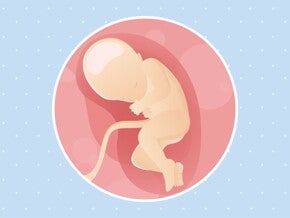
32-week pregnant: baby development and diet tips
Your baby is still developing as you head into the final lap, but it’s mostly perfecting and polishing from here on out. He or she is getting ready to meet you!
2 mins to read

Your 28th Week of Pregnancy
Your baby is about the size of a head of cauliflower. The size of your baby is 21 cm from crown to rump and 33 cm from crown to heel. It weighs 870g, which is generally about one-third
3 mins to read

Food allergies: advice you need to know
Recent research on food allergies has led to new recommendations for the introduction of allergy-triggering foods once babies start eating solid food. Confused?
5 mins to read

9-week pregnant: baby development and diet tips
Two hearts beat as one, as the song says. In actual fact, your baby’s heart is beating just fine on its own. Read more about this week.
3 mins to read

Iron during pregnancy
During pregnancy, iron plays an important role. It is iron that transports oxygen to the cells.
3 mins to read
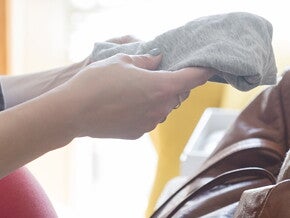
Your hospital bag checklist
Not sure what to pack in your hospital bag? We have put together a simple hospital bag checklist with all the essentials. Forget packing light, it’s about packing right.
3 mins to read
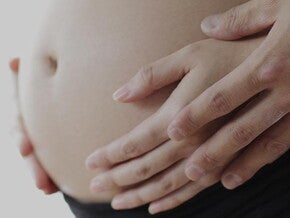
Planning for pregnancy: 9 essential habits to make or break down now
Plan for pregnancy with these tips
1 min to read

22-week pregnant: baby development and diet tips
If you could look inside, you may see your baby sucking her thumb. It’s nature’s way of getting her ready to breastfeed from birth. Read more about this week.
3 mins to read

Methods Of Giving Birth
You mean there is more than one way to give birth? Sometimes women don't have a choice, but often they do. Find out what your options are.
3 mins to read
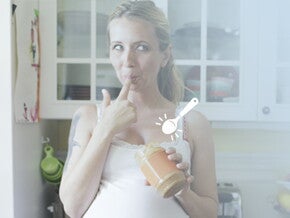
There is no need to avoid certain food to prevent allergies while pregnant
Did you know? Latest scientific research reveals there’s no need to avoid certain foods during pregnancy because you’re worried they might cause your baby to have allergies.
2 mins to read

Everything you need to know about breastfeeding
With so much information on breastfeeding out there, can you separate the fact from the fiction? Put your knowledge to the test with our quick quiz.
6 mins to read

33-week pregnant: baby development and diet tips
Six weeks. That’s about how long you’ve got left before you get to meet the little person growing inside you. Amazing, right? We think so. Read on to know more about this week.
3 mins to read

Your 32nd Week of Pregnancy
Your baby is about the size of a coconut. The size of your baby is 25cm from crown to rump and 37 cm from crown to heel. It weighs 1.5kg, less than half the average weight it should rea
3 mins to read
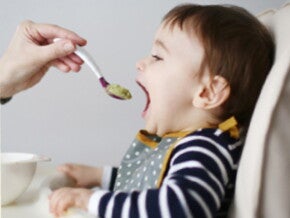
Getting started with solid foods: traditional and baby-led-weaning
Your baby may be developmentally ready to start complementary feeding at around six months of age, when she is able to hold her head up and sit in a high chair.
3 mins to read
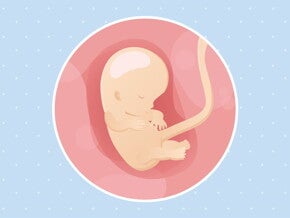
10-week pregnant: baby development and diet tips
You are already at week 10 of your pregnancy. Still another 29 weeks to go before you get to meet your little love. Learn more about what’s going on this week.
4 mins to read
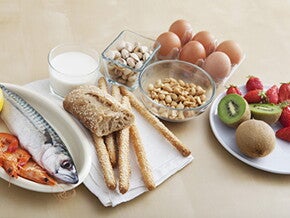
Calcium & Vitamin D in pregnancy
Calcium is essential for your baby's skeleton and your own. It should be consumed together with Vitamin D, which allows it to be absorbed by the bones.
3 mins to read